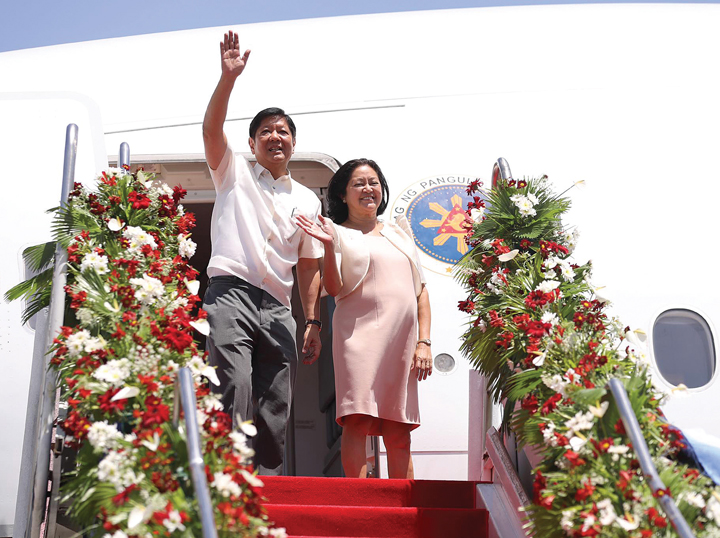THE Philippines is ready to give its nod on the World Trade Organization (WTO) trade-facilitation agreement (TFA), which is seen to increase the country’s trade with the rest of the world by up to 8 percent once implemented.
“We are aiming to send our acceptance for [the agreement] in July 2015, and [it is] currently undergoing domestic processes,” Trade Undersecretary Adrian S. Cristobal told the BusinessMirror.
Member-economies have until July 31 to accept the protocol of amendment inserting the TFA into the WTO agreement.
Manila’s decision to approve the multilateral agreement is being backed by the World Bank Group, which said that the deal can improve intraregional trade in the East Asia Pacific by 4 percent.
Hans Shrader, senior program manager in the Trade and Competitiveness Global Practice of the World Bank Group, noted that the TFA will ultimately be a boon to the business community, which has long pushed for reforms within the customs office to remove red tape and streamline regulations.
“The TFA urges countries to publish relevant trade-policy requirements and fees in a nondiscriminatory and easily accessible manner; provide the right of appeal to border agencies’ administrative decisions; limit trade-related fees and charges to the approximate cost of the services rendered and minimize complexities of import export and transit formalities. These steps facilitate more efficient and, thus, lower cost to trade. This benefits both Philippine consumers of imports and Philippine exporters of goods,” Shrader said.
These reforms can, in turn, enhance the flow of goods and boost regional trade, the World Bank executive said.
“Properly implemented reforms should have the impact of reducing time and cost to trade. In the East Asia Pacific region, the World Bank Group sees that a 10-percent reduction in export time results in over 4-percent increase in trade. Reforms will also discourage corruption. We find that the longer it takes to get import or export permits, the higher the country ranks in a corruption index. However, cutting time, and potentially corruption, can result in over 10-percent increase in regional trade,” Shrader added.
Donald Dee, Philippine Chamber of Commerce and Industry COO and honorary chairman, pressed for the ratification, which can boost the country’s total trade by as much as 8 percent.
“We have to sign [the TFA] because, otherwise, we will be disadvantaged compared to other countries. We have to be open to this and try to be more competitive. Imports will increase, as well as exports; we’ll be able to tap other markets but others will get a share of ours as well—total trade can increase by 7 percent to 8 percent,” Dee said in a phone interview.
The TFA should be a stimulus for the domestic manufacturers to ramp up their competitiveness, as imports will also likely spike if the Philippines embarks on the move to ease trade regulations.
In December 2013, the WTO concluded negotiations on the TFA, part of the wider “Bali Package.”
The orgtanization reached an impasse in July 2014 due to India’s concern over food security, but overcame the deadlock in November, when WTO members formally adopted the protocol for amendment. That development has opened the protocol for formal acceptance and ratification by individual members.
For the TFA to come into force, two-thirds of the WTO membership must ratify the agreement through submitting its “instrument of acceptance” to the WTO, and only then will it apply but only to those who have agreed to it. So far, only Hong Kong, the US and Singapore have sent letters of acceptance for the TFA.
The TFA is significant as it can re-duce trade costs and enhance trade flows between countries. The WTO estimates that the TFA could increase total world trade to $23 trillion from the current estimate of $22 trillion.
The Organization for Economic Cooperation and Development estimates that reduction in trade costs could range from 11.7 percent to 15.1 percent for lower-middle income countries, such as the Philippines.
The agreement essentially simplifies customs procedures and requires customs reforms like transparency, a “single window” for all government agencies dealing with imported merchandise, automation, electronic payment of duties and the separation of the payment of duties from the release of cargo, among others.
There were fears that the customs’ plan to reinstall the preshipment inspection (PSI) could prove to be a hurdle to the country’s TFAs commitment. This plan, however, hangs.
Trade Secretary Gregory L. Domingo, asked to comment on the matter last December, said it’s too early to say whether any roadblock will obstruct the country’s commitment to the TFA, but still welcomed the suspension of the PSI.
Dee said the PSI will not be considered a nontariff barrier if it fulfills three conditions: it is made voluntary, it will be automatically accepted by the Bureau of Customs, and if the valuation methodology is clearly spelled out.
The TFA consists of a list of commitments (or “technical measures”) geared toward easing trade exchange and which must be adopted by the governments who accept them.
The WTO began accepting commitments from members since July 2014. Cristobal mentioned before that the Philippines has submitted over 30 of the 40 commitments in the agreement. As a developing country, the Philippines can choose which commitments to prioritize, and the implementation can be on a staggered basis.
Though a lot of the measures only apply to the customs administration, the majority of provisions apply to all border agencies that deal with trade in goods.




































